| | The US steps up talks with China as it halts them with Canada, Takaichi pledges new defense spending͏ ͏ ͏ ͏ ͏ ͏ |
| |  | Flagship |  |
| |
|
The World Today | 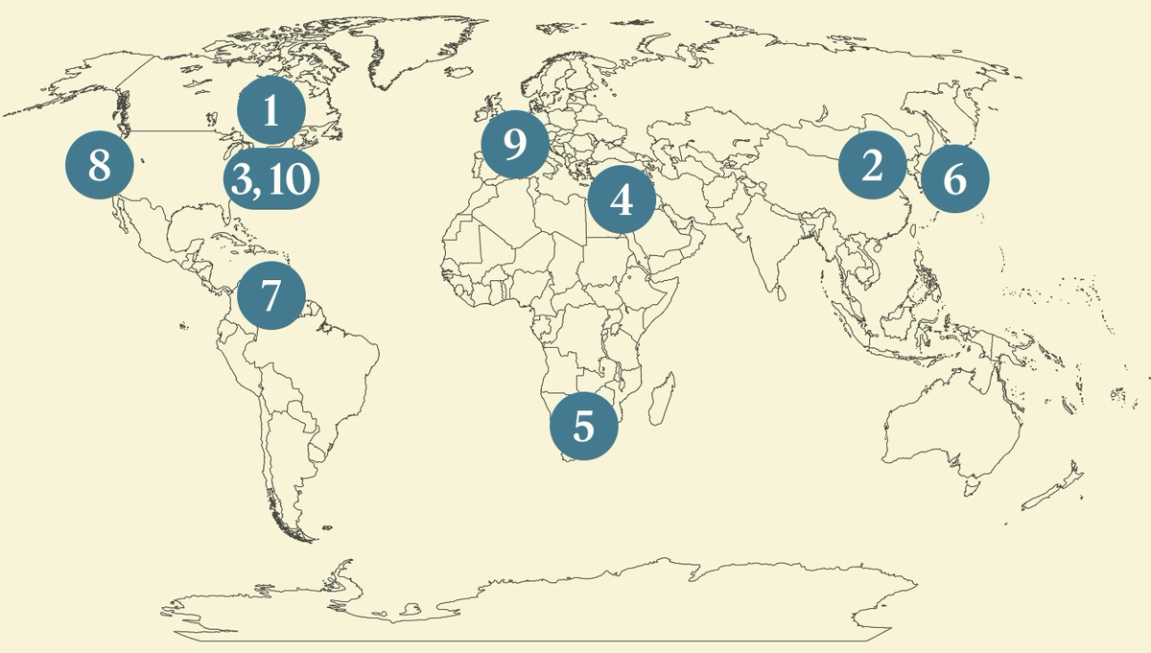 - Trump halts Canada talks
- US-China talks intensify
- ‘Escalate to negotiate’
- US steps up ‘Bibi-sitting’
- SAfrica diplomatic row
- Takaichi’s defense pledge
- US ups Venezuela pressure
- More AI megadeals
- Louvre heist viral ad
- Meat back at Madison Park
 An ‘impeccable’ new album of 19th-century duets and arias. |
|
Trump suddenly cancels Canada talks |
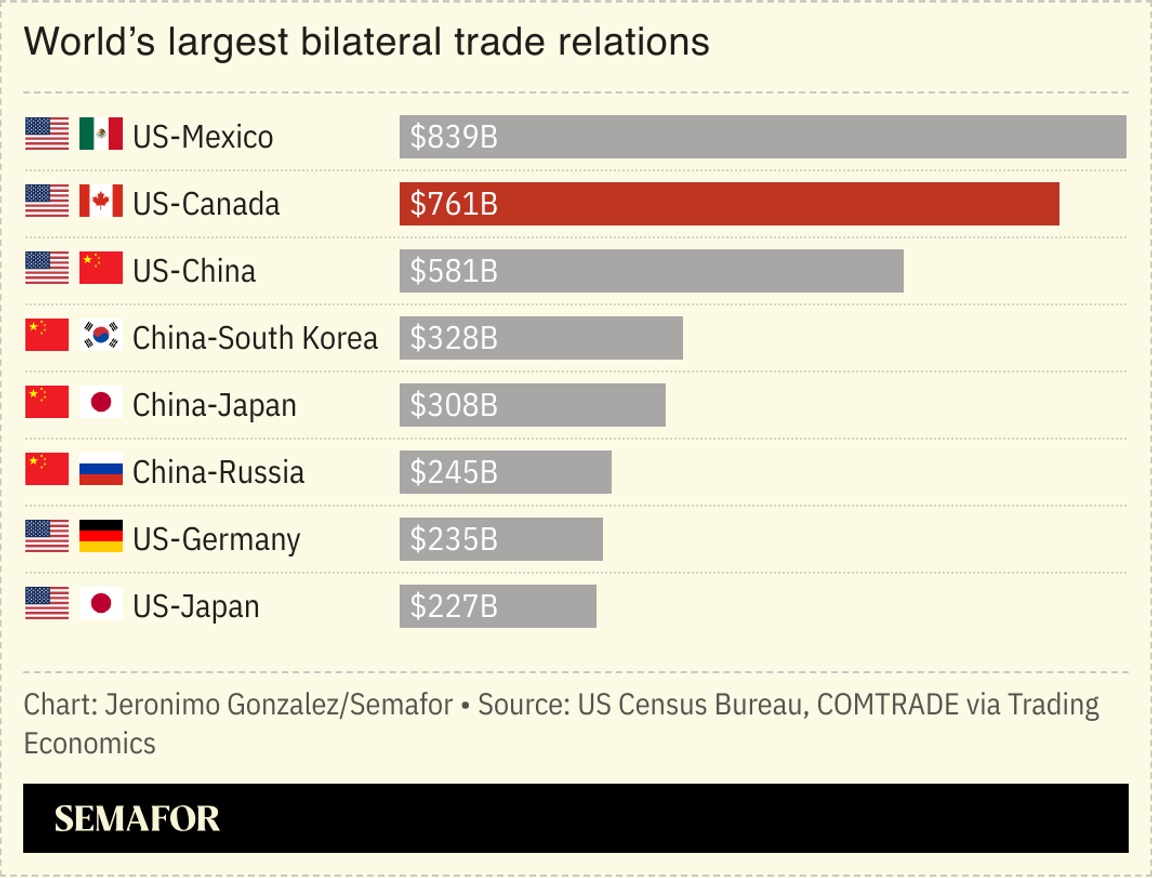 US President Donald Trump abruptly canceled ongoing trade negotiations with Canada over a provincial government ad against his tariff campaign. The sudden announcement upended what appeared to have been briefly warming ties between the neighbors: Trump railed against the Ontario government’s commercial, which quoted former US President Ronald Reagan, like Trump a Republican, as saying that tariffs “hurt every American.” Canadian Prime Minister Mark Carney has sought to take a tough line against US protectionism, but his country is highly dependent on its giant neighbor to the south, and the last time Trump suspended trade talks with Ottawa — in June, over a digital tax on US tech companies — Canadian authorities quickly withdrew the measure. |
|
US-China trade talks intensify |
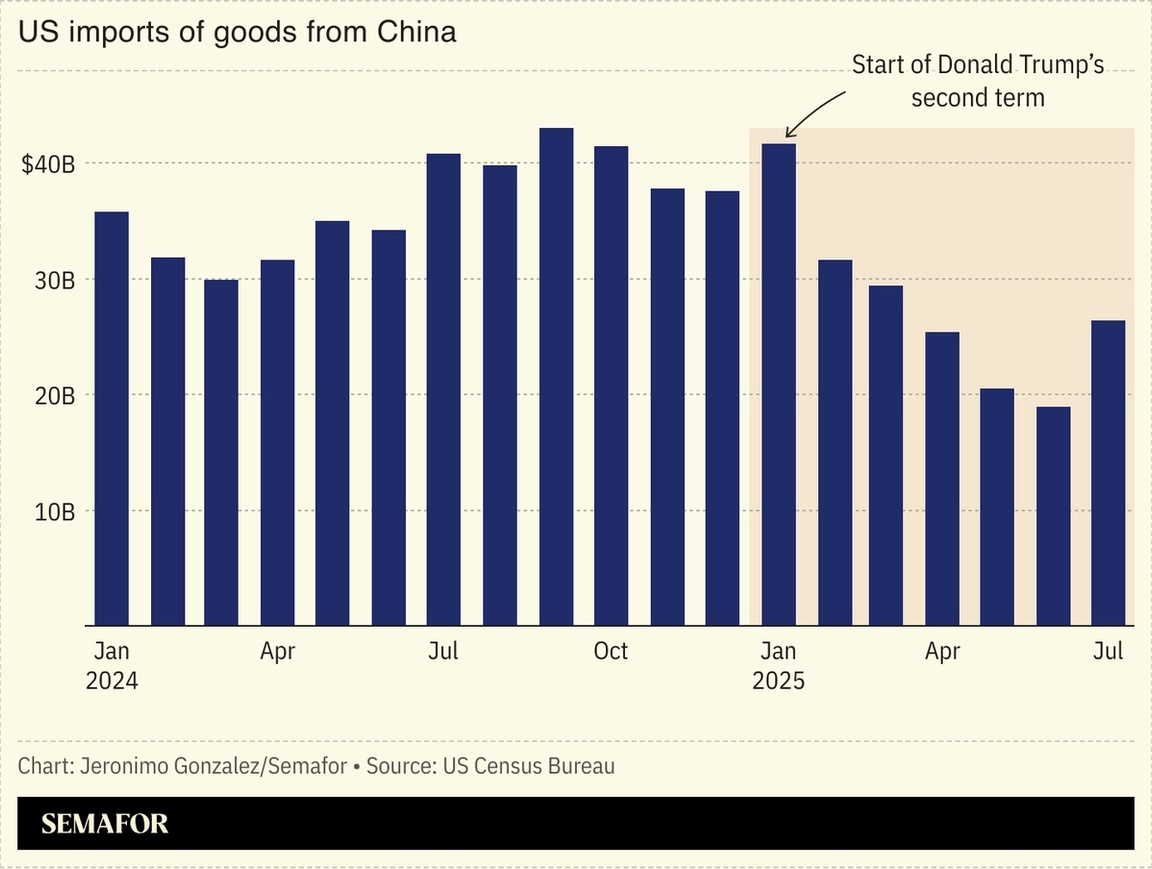 Washington and Beijing are readying for a high-stakes week of talks which will culminate in a meeting between their respective leaders. The US Treasury secretary and China’s top trade negotiator are set to face off in Malaysia this weekend for the fifth time since the world’s two biggest economies engaged in a back-and-forth that saw duties on each other’s goods briefly top 100%. They hope to set a framework that US President Donald Trump and Chinese leader Xi Jinping can finalize when they meet next week. “With the recent cooling of rhetoric… we are leaning toward a positive outcome that at least extends, if not builds on, the uneasy trade truce of the past few months,” ING economists said. |
|
Global powers’ new trade tactics |
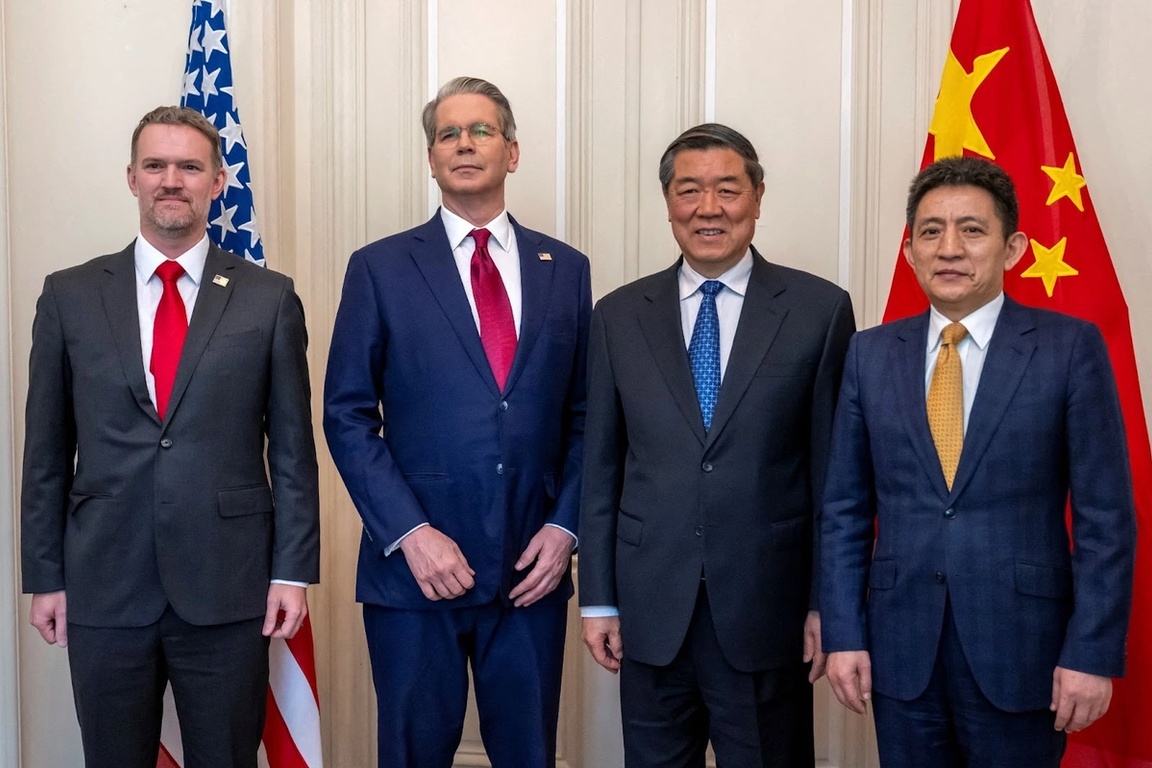 US and Chinese trade negotiators. KEYSTONE/EDA/Martial Trezzini/Handout via Reuters US and Chinese trade negotiators. KEYSTONE/EDA/Martial Trezzini/Handout via ReutersGlobal powers are increasingly opting for an “escalate-to-negotiate” strategy when it comes to addressing trade tensions, experts noted. The US and China look to have perfected this dance: “First, create a crisis,” The Wall Street Journal’s chief China correspondent wrote. “Then… step in to negotiate a solution, allowing both leaders to claim a victory.” Indeed, Morgan Stanley economists now expect “a continued dynamic of rolling negotiations and truces” in “a grinding, tactical contest for advantage” between the superpowers. Others are mulling the same playbook: The EU should deploy its “trade bazooka” against China to force Beijing to withdraw restrictions on rare earth exports, analysts at the European Council on Foreign Relations recommended in a recent policy brief. |
|
US ‘Bibi-sitting’ aims to hold truce |
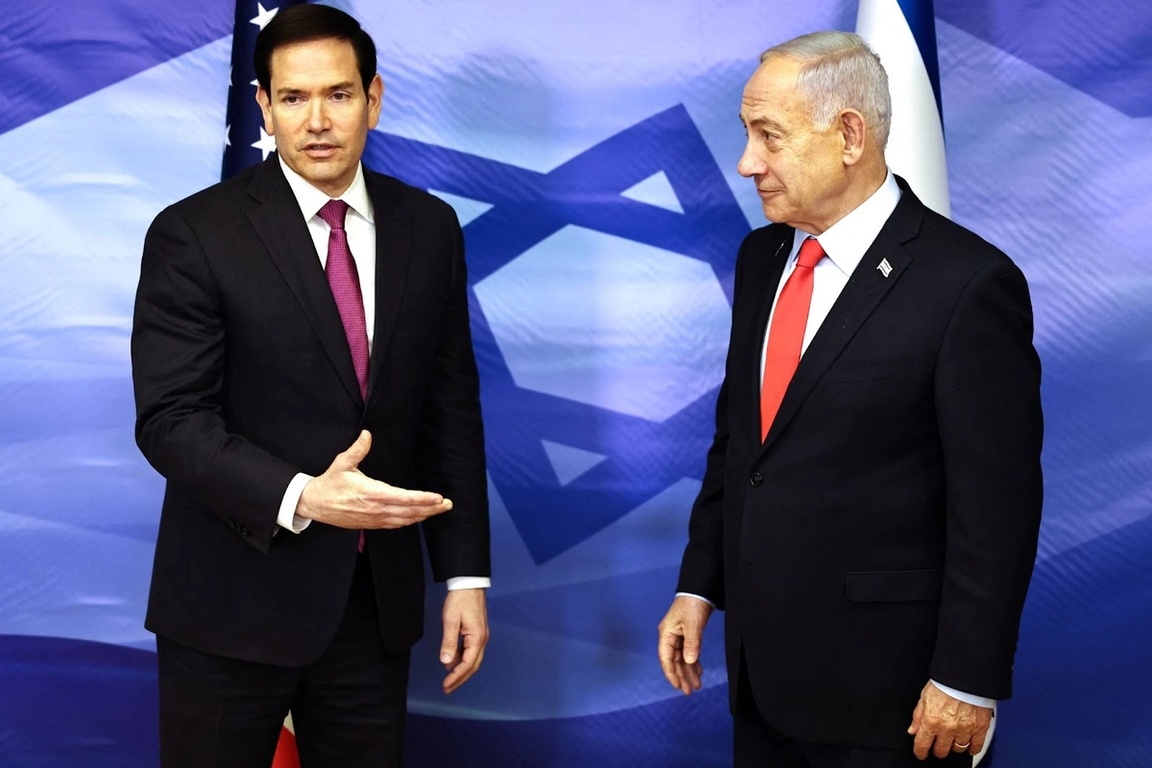 Fadel Senna/Pool via Reuters Fadel Senna/Pool via ReutersThe US is piling pressure on Israeli Prime Minister Benjamin Netanyahu to keep the fragile Gaza ceasefire in place. The White House has dispatched a series of top officials to Israel, led by Vice President JD Vance, after Netanyahu angered US President Donald Trump by launching air strikes on Gaza. US and Israeli officials call the diplomatic surge “Bibi-sitting.” The constant supervision to prevent him from falling into old habits is humiliating to Netanyahu — he replied angrily to a journalist’s question about whether Israel was a US client state — but is a sign that Washington wants to move the situation beyond a simple truce to the tricky hurdles of Hamas disarmament and an international peacekeeping force, the Financial Times argued. |
|
US SAfrica envoy warns of drift |
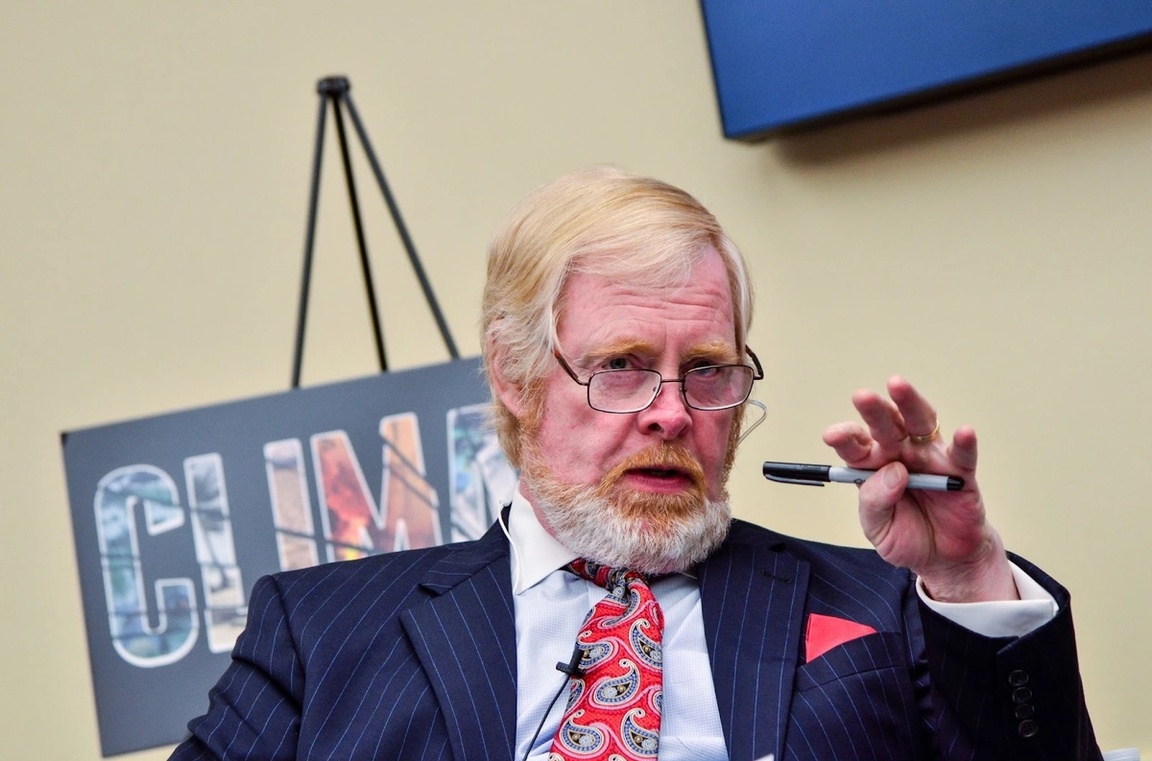 Leo Brent Bozell. Kris Connor/Getty Images Leo Brent Bozell. Kris Connor/Getty ImagesWashington’s nominee for ambassador to South Africa used his confirmation hearing to offer support for disputed claims that the country’s white minority was under attack. Leo Brent Bozell also said he would push Africa’s biggest economy to halt its “geostrategic drift” toward US rivals including China, Iran, and Russia, while demanding Pretoria drop its genocide case against Israel. Bozell’s likely confirmation will probably pile further pressure on the two countries’ ties, which have plummeted in recent months over US allegations that South Africa discriminates against its white population. Indeed, the US is reportedly planning to allow just 7,500 refugees into the country this year, with around 7,000 of those being white South Africans. |
|
Japan PM tough on defense |
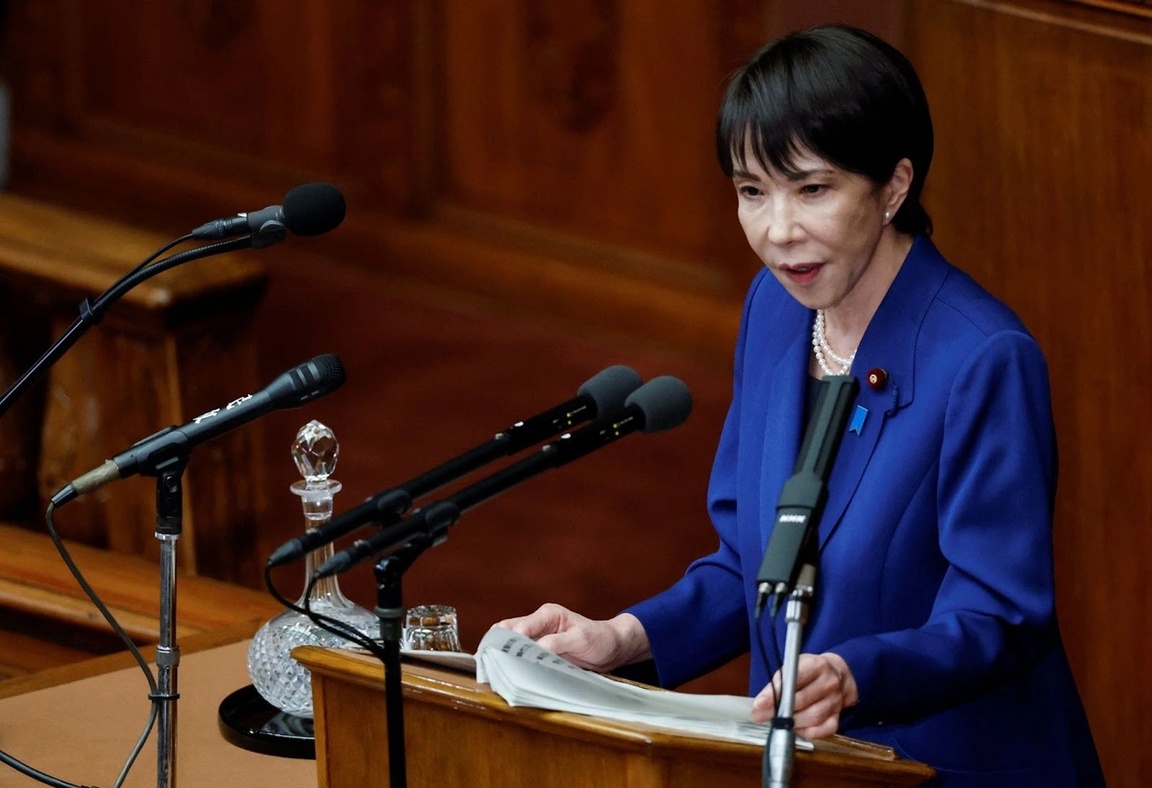 Kim Kyung-Hoon/Reuters Kim Kyung-Hoon/ReutersJapan’s new Prime Minister Sanae Takaichi used her first parliamentary speech to pledge increased defense spending and to warn of Russia and China’s threat to the international order. Despite being a moldbreaker as Japan’s first female premier, Takaichi has conservative instincts, a political scientist argued in Carnegie Politika: She is anti-immigration, hawkish on national security, and has in the past angered Beijing by calling Taiwan an “important partner.” Her first big diplomatic test will be a visit from US President Donald Trump on Monday. Her pledge to boost defense-related expenditure to 2% of GDP, as he has pushed NATO countries to do, is well designed to curry favor with Washington.
|
|
US ups Venezuela pressure |
 Issei Kato IK/Reuters Issei Kato IK/ReutersThe US flew two B-1 bombers close to Venezuela, the latest move in Washington’s pressure campaign against Caracas. American forces have in recent weeks struck several vessels off the coast of the Latin American country, part of a broader operation against Venezuelan President Nicolás Maduro, characterizing the autocratic leader as the head of a drug cartel who must be stopped rather than explicitly pushing for regime change. Though some US conservatives warn that the campaign could mire the country in another “forever war,” hawkish figures including Secretary of State Marco Rubio — who is focused on weakening and possibly toppling authoritarian leftist regimes in Latin America — appear to hold the upper hand. |
|
 American Eagle’s summer campaign with Sydney Sweeney blew up in ways few could have imagined, but Chief Marketing Officer Craig Brommers knew they were going to hit a cultural nerve. This week, Ben and Max bring him on to get an inside look at the “Great Jeans” campaign, what he made of the controversy that surrounded it, and how Donald Trump and JD Vance boosted sales. They also discuss how marketing today is like running an entertainment company, why he ignored the advice of what he calls the “crisis communication industrial complex,” and whether their campaign with Travis Kelce was timed to Kelce’s engagement to Taylor Swift. Listen to the latest episode of Mixed Signals now. |
|
Video showcases Louvre theft |
|
|